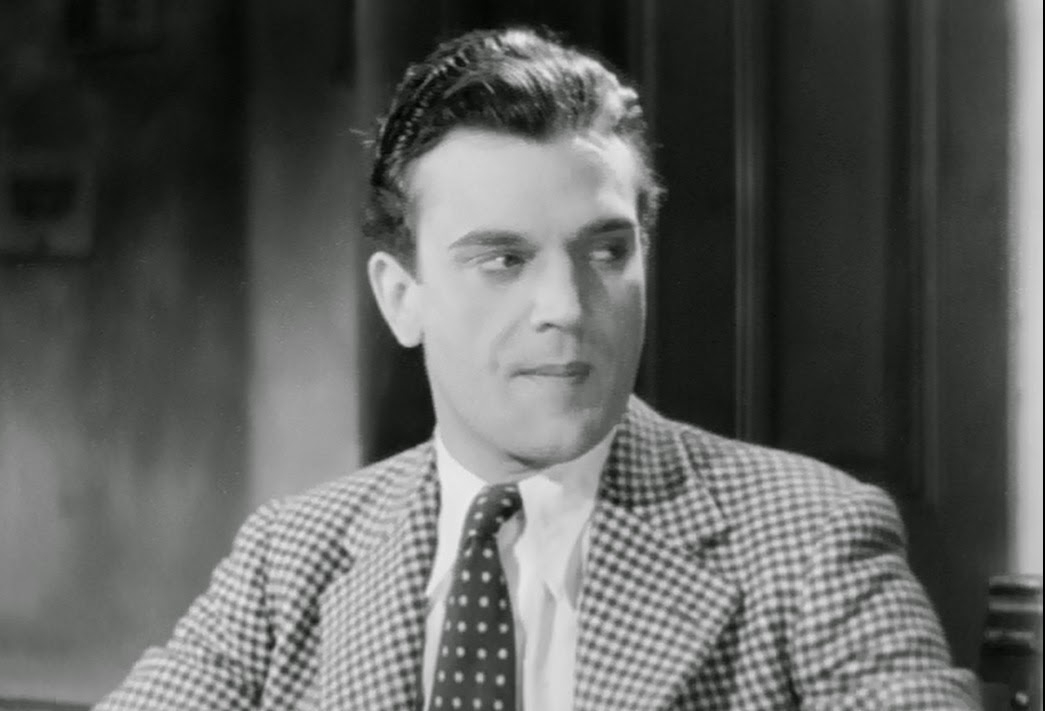There Ain’t No Justice (1939)
 |
| Richard Norris, Jimmy Hanley & Mike Johnson |
This film is a fascinating collaboration between two men,
whose careers have been much overlooked in later years and whose careers were
ended by war. In the case of the writer/director Pen Tennyson his promising
career was brought to an untimely end by a plane crash in 1941 whilst serving
in the Royal Navy. An Old Etonian,
Tennyson was the great grandson of the poet Alfred Lord Tennyson. Having worked
for Alfred Hitchcock during the 1930s, he directed just three films before his
death: There Ain’t No Justice, The Proud Valley and Convoy (both 1940). All
three were highly acclaimed and Tennyson was a favourite of Ealing Studio’s
head Michael Balcon, who considered him to have a bright future.
His co-writer James Curtis (upon whose 1937 novel the film
was based) joined the army, served overseas, reached the rank of major, but
returned home to a world which had changed. With both author and market changed
by war, he never again achieved the heights he had reached with ‘There Ain’t No
Justice’ (1937) and ‘They Drive By Night (1938). Having written five novels
between 1936 and 1939 he only produced one more book between war’s end and his
death in 1977. In the years that followed demobilisation from the army, his
fame faded and he scraped a living, hardly acknowledging that he was once the
rising star of British literature who had seen his two novels adapted for the screen
within a year of publication.
The film tells the story of Tommy Mutch (James Hanley) ...
 |
| Jimmy Hanley |
... who,
encouraged by his success in a street brawl with an established boxer Frank Fox
(Michael Hogarth) ...
 |
| Michael Hogarth |
... decides to give up his job as a mechanic and turn
professional under the watchful eye of trainer Harry Dunn (Mike Johnson –
complete with authentic cauliflower ear):
 |
| Mike Johnson |
He soon learns that the world of professional boxing is a
crooked game when his promoter Sammy Sanders (Edward Chapman) ...
 |
| Edward Chapman |
 |
| Edward Chapman |
... gets his
girlfriend Dot Ducrow (Nan Hopkins) to seduce Tommy into throwing a fight. Both
are unsavoury characters with Sammy dressed in flash suits, smoking fat cigars,
wearing a comical moustache and – more importantly – caring little for his
boxers apart from when they are making money for him. Dot is a highly sexual
character whose relationship with Sammy doesn’t stop her from openly admitting
that she is looking forward to seducing Tommy:
 |
| Nan Hopkins |
The first two thirds of the film are gritty and recreate the
book’s feel, with boxing being a way out of poverty for ambitious young
fighters. The injuries suffered by some boxers are depicted in a harrowing
manner, allowing the audience to understand that this is not a pro-pugilism
picture. The film even opens with a statement recognising that boxers are
exploited by managers and promoters:
The problem with the film is that Tennyson and Curtis knew
that many of the book’s harder themes and scenes would never get past the
censor. As a result, the film changes tone towards the end and the closing
scenes (and happy ending) are a far cry from the ending of the original book.
It leaves the viewer feeling that, had they been able to remain true to the
novel, this might have been one of the all-time greats of British cinema.
Without the hard ending it remains an entertaining film but one which – pardon
the pun – doesn’t deliver its final punch.
Despite this, the film is well-worth watching and is
available from Network DVD as part of their Ealing Rarities series:
To get a feel of what might have been, I would recommend
getting a copy of the book which has been recently republished by the wonderful
publishing house London Books:
And look out for the cardboard cut-out spectators watching
the final fight scenes:
Here’s who else appears:
 |
| Michael Wilding in only his third credited screen role, with Phyllis Stanley |
 |
| Jill Furse, who had previously appeared in ‘Goodbye, Mr Chips’ but never made another film after ‘There Ain’t No Justice’, and died in childbirth in 1944. |
 |
| Al Millen |
 |
| Edward Rigby & Mary Clare |
 |
| Gus MacNaughton |
 |
| John Boxer |
 |
| Richard Ainley |
 |
| Richard Norris |









































